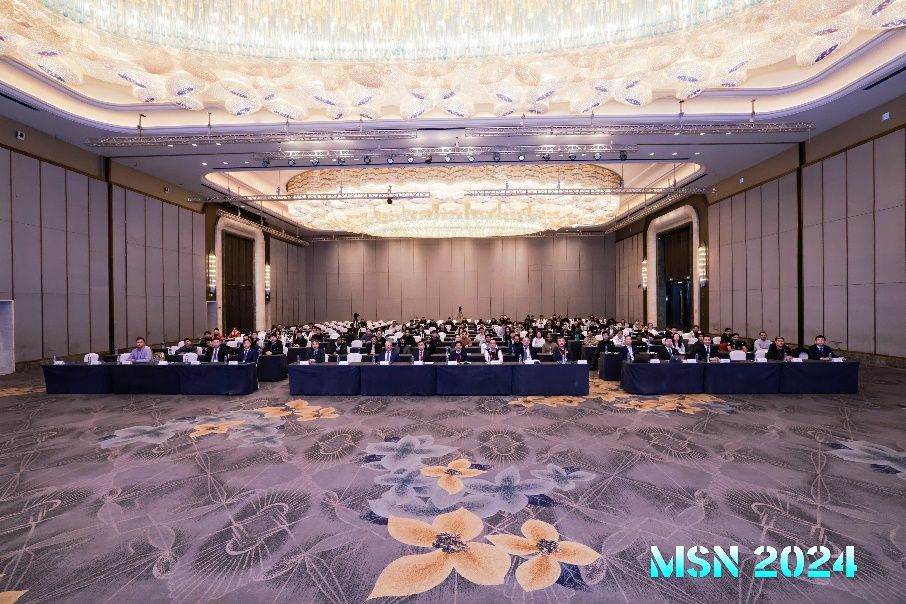
The 20th International Conference on Mobility, Sensing, and Networking (MSN 2024) took place in Harbin from December 20 to 22, 2024. The event was hosted by IEEE and organized by Harbin Engineering University.
Over 200 experts and scholars from diverse fields such as mobile computing, artificial intelligence, and intelligent sensing gathered to engage in in-depth discussions. These discussions focused on foundational theories in mobility, sensing, and networking, as well as their applications across sectors including the Internet of Vehicles, smart cities, intelligent manufacturing, smart healthcare, smart agriculture, and digital twins.
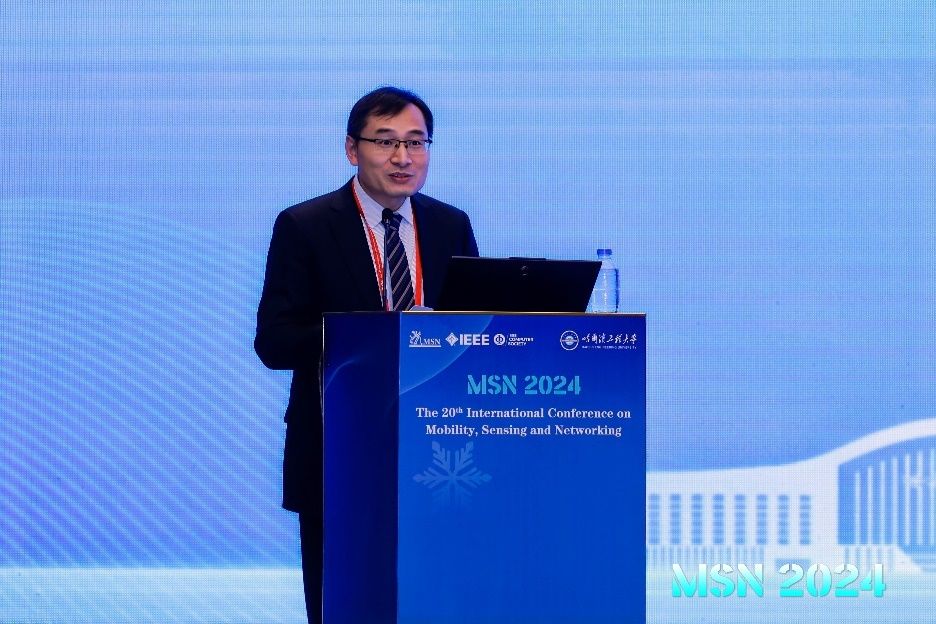
Vice President YU Zhiwen of Harbin Engineering University delivered a welcome address at the conference, emphasizing the growing importance of mobility, sensing, and networking technologies. He noted that these fields are crucial for advancing intelligent transportation, smart cities, industrial automation, and digital twins, drawing significant attention from both academic and industry communities worldwide. He extended a warm welcome to the attending experts and scholars, inviting them to collaborate with Harbin Engineering University in driving scientific breakthroughs and technological innovation, contributing to the development of a strong cyber nation.
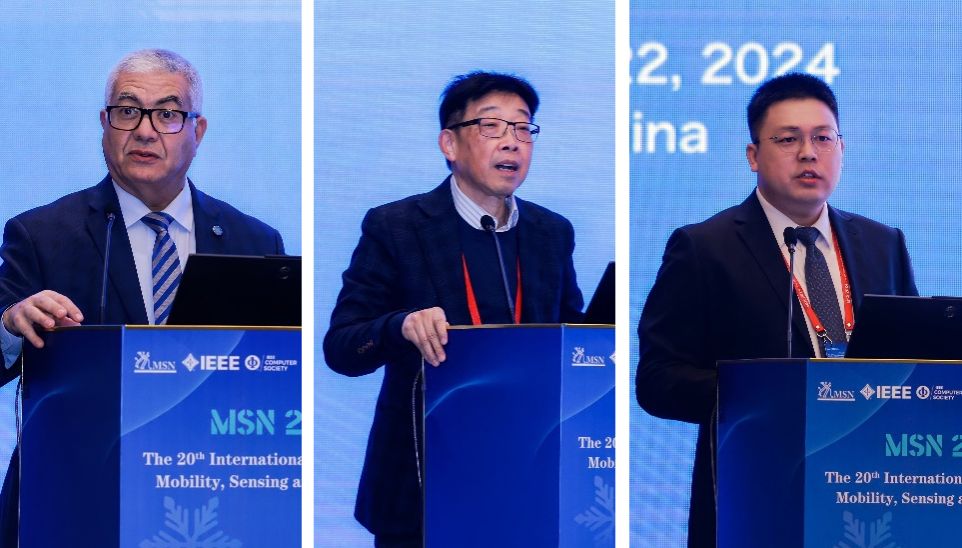
During the opening ceremony, the conference co-chair, Professor Abdulsalami Sumi Eilar from the University of Bologna, presented the conference theme. Professor CAO Jiannong, Chairman of the Steering Committee, outlined the preparations for the event, while Professor CUI Helei, from Northwestern Polytechnical University and Chairman of the Program Committee, provided an overview of the conference's structure.
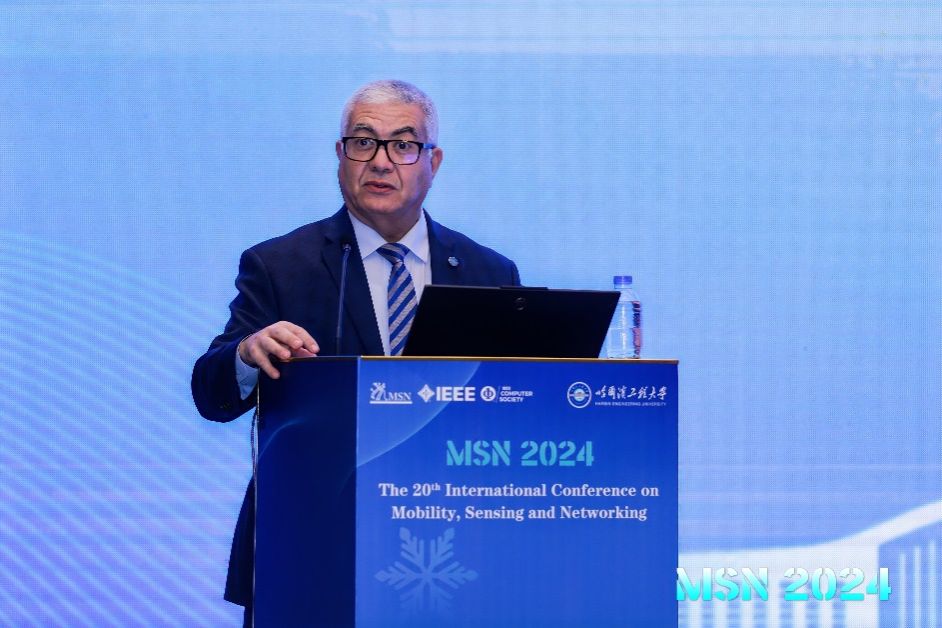
Following the opening ceremony, four distinguished experts delivered keynote speeches on emerging topics in mobility, sensing, and networking.
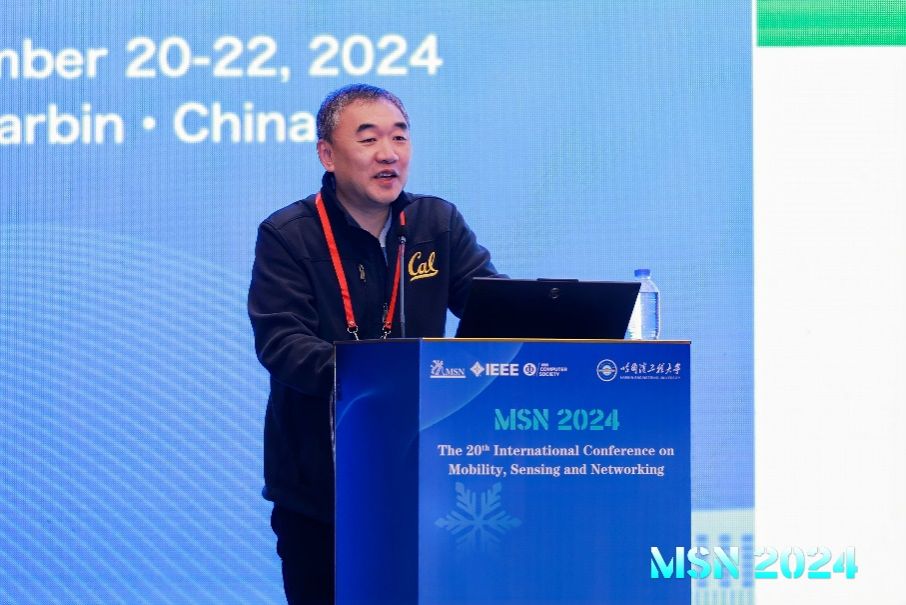
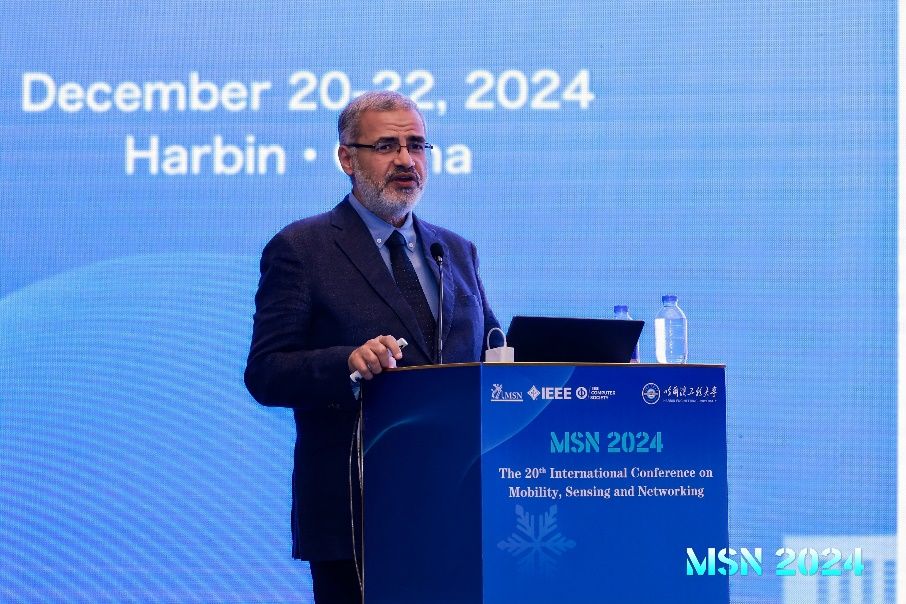
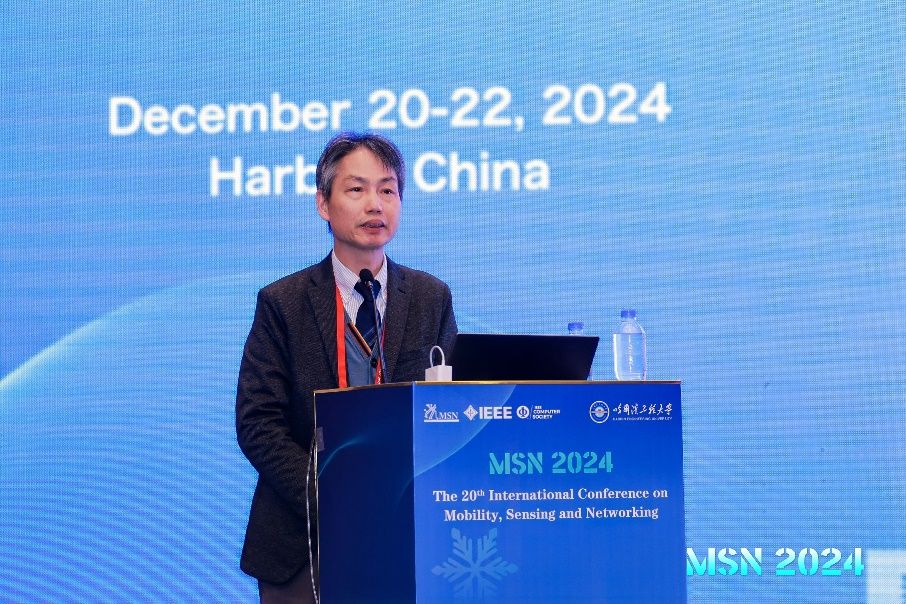


On December 21 and 22, the main forum featured group discussions on two key themes: "The Future of Mobility, Sensing, and Networking: Challenges and Opportunities," and "The Evolution of Swarm Intelligence Sensing: Unleashing the Energy of Large Language Models."
A total of 173 papers were presented at the conference, with six main topics (tracks) covering mobile and wireless sensing, edge computing, the Internet of Things, digital twins, big data, and artificial intelligence. In addition, five workshops explored subjects such as artificial intelligence applications in the Internet of Things, distributed machine learning, and sensor-cloud computing systems. The conference also included 29 sub-forums and a poster exchange session.
